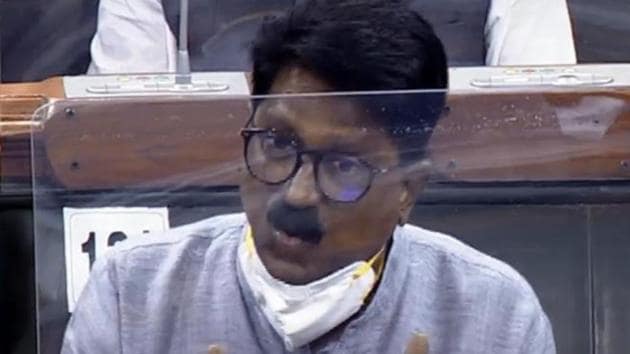‘Somewhere we made mistakes’: Shiv Sena’s Arvind Sawant on implementation of Covid-19 lockdown
He also said that there were no trains to ply the migrant workers back to their native places but goods trains mowed down people while they were sleeping on railway tracks.
Shiv Sena leader Arvind Sawant on Sunday highlighted the shortcomings of the sudden announcement of the Covid-19 lockdown. Speaking on a discussion on the management of the Covid-19 pandemic in the Lok Sabha, the MP from South Mumbai said that post-announcement of the lockdown there were so many people on the streets that the idea of social distancing went for a toss.

He also said that there were no trains to ply the migrant workers back to their native places but goods trains mowed down people while they were sleeping on railway tracks.
“After the announcement of lockdown, Mumbai streets saw more people than the number of people who would have come to streets post-Partition. But the government didn’t start trains. People were mowed down by (goods) trains on railway tracks. Somewhere we made mistakes,” he said.
Sawant also highlighted how the Dharavi model became a standard for curbing the coronavirus contagion. He said that authorities in the Philippines implemented the same techniques to address the surge in the number of infections. He also said that the foreign as well as national media praised authorities in Maharashtra for the way they handled the infection in Dharavi, which is one of the largest slums in Mumbai, where people live in close proximity.
Lok Sabha Speaker Om Birla also highlighted the need of having discussions in Parliament on the coronavirus disease. “I have been saying it from the first day that you have given a positive message to the nation, by coming to Parliament in such large numbers even in the wake of a threat to health security,” said Birla.
The Speaker also called the outbreak one of the greatest challenges to mankind. He said that these conversations will provide solutions to the nation in solving the challenges of Covid-19.






